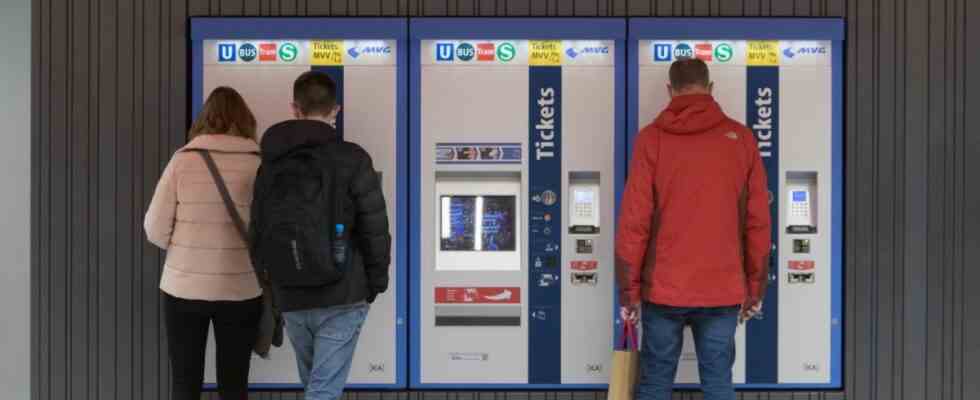This Friday, the shareholders of the Munich Transport and Tariff Association (MVV) will decide on a new tariff. And it can be assumed that prices will rise. Because under the current financing system, the transport companies are dependent on the income from fares. Should the federal government introduce a successor to the nine-euro ticket, it would therefore have to ensure that there is enough money left for transport companies such as the Munich transport company (MVG) so that they can expand their offer – or at least maintain it. Because you can’t do it on your own, said MVG boss Ingo Wortmann at a press round of MVV, MVG and Bayerische Eisenbahngesellschaft (BEG).
Wortmann, who is also President of the Association of German Transport Companies (VDV), said he thought a successor solution would make sense. The VDV proposes a 69-euro ticket that would cost two billion euros. According to MVV Managing Director Bernd Rosenbusch, there would be enough money for public transport in Germany, it just doesn’t get there. “It’s just a matter of prioritization,” he said.
Exploding energy prices and increased personnel costs put MVG in trouble: If it were up to their needs, the MVV shareholders would even have to increase the tariff by 22 percent. A similarly drastic increase, namely by 30 percent, only occurred in 1980, also at that time because of increased personnel and fuel costs. It led to long-lasting and violent protests, the opponents even tried to overturn them before the administrative court – in vain. A comparable increase would not be possible today. An increase of up to 6.9 percent is under discussion.
The S-Bahn wants to buy 100 new trains
According to Wortmann, however, the MVG is structurally underfinanced at 30 million euros a year, and this sum will increase to 100 million. When MVG presented its service program for 2023 in April of this year, it therefore proposed some service cuts. The city council has not voted on it yet. According to Wortmann, two billion euros a year would be needed to expand public transport in the Munich area in order to meet the climate targets.
The S-Bahn also needs money. The modernization of the fleet with 238 type ET 423 trains alone cost 300 million euros. In the future, the plan is to add 100 new, 200 meter long trains. In addition, there is the construction of two new S-Bahn plants in Munich – one in the east and one in the west of the city. Up to 900,000 people currently use the S-Bahn every day. S-Bahn boss Heiko Büttner expects 60 percent more passengers by 2040. This onslaught could not be managed without the second regular route.
As far as infrastructure on the rails is concerned, even beyond Munich, Thomas Prechtl, BEG Managing Director and President of the Federal Association of Local Rail Transport, comes up with clear words. 60 percent of all delays are due to the infrastructure. The BEG, which organizes the S-Bahn and regional rail transport for the Free State, has repeatedly criticized the poor condition of the rails. “Ordinary rail traffic is no longer possible,” said Prechtl. There is a “huge investment backlog”, and more needs to be done in terms of maintenance in order to prevent failures of signals or points in advance. Prechtl’s verdict: “The condition of the infrastructure can only be endured with two halves.”

